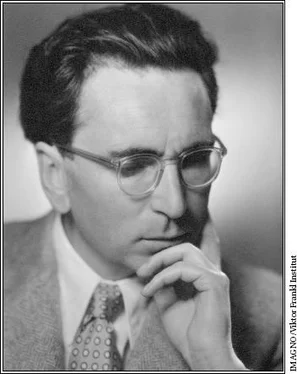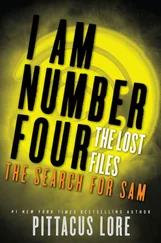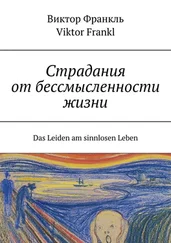And how does a human being go about finding meaning? As Charlotte Bühler has stated: “All we can do is study the lives of people who seem to have found their answers to the questions of what ultimately human life is about as against those who have not.” 5In addition to such a biographical approach, however, we may as well embark on a biological approach. Logotherapy conceives of conscience as a prompter which, if need be, indicates the direction in which we have to move in a given life situation. In order to carry out such a task, conscience must apply a measuring stick to the situation one is confronted with, and this situation has to be evaluated in the light of a set of criteria, in the light of a hierarchy of values. These values, however, cannot be espoused and adopted by us on a conscious level—they are something that we are . They have crystallized in the course of the evolution of our species; they are founded on our biological past and are rooted in our biological depth. Konrad Lorenz might have had something similar in mind when he developed the concept of a biological a priori , and when both of us recently discussed my own view on the biological foundation of the valuing process, he enthusiastically expressed his accord. In any case, if a pre- reflective axiological self-understanding exists, we may assume that it is ultimately anchored in our biological heritage.
As logotherapy teaches, there are three main avenues on which one arrives at meaning in life. The first is by creating a work or by doing a deed. The second is by experiencing something or encountering someone; in other words, meaning can be found not only in work but also in love. Edith Weisskopf-Joelson observed in this context that the logotherapeutic “notion that experiencing can be as valuable as achieving is therapeutic because it compensates for our one-sided emphasis on the external world of achievement at the expense of the internal world of experience.” 6
Most important, however, is the third avenue to meaning in life: even the helpless victim of a hopeless situation, facing a fate he cannot change, may rise above himself, may grow beyond himself, and by so doing change himself. He may turn a personal tragedy into a triumph. Again it was Edith Weisskopf-Joelson who, as mentioned, once expressed the hope that logotherapy “may help counteract certain unhealthy trends in the present-day culture of the United States, where the incurable sufferer is given very little opportunity to be proud of his suffering and to consider it ennobling rather than degrading” so that “he is not only unhappy, but also ashamed of being unhappy.”
For a quarter of a century I ran the neurological department of a general hospital and bore witness to my patients’ capacity to turn their predicaments into human achievements. In addition to such practical experience, empirical evidence is also available which supports the possibility that one may find meaning in suffering. Researchers at the Yale University School of Medicine “have been impressed by the number of prisoners of war of the Vietnam war who explic- itly claimed that although their captivity was extraordinarily stressful—filled with torture, disease, malnutrition, and solitary confinement—they nevertheless … benefited from the captivity experience, seeing it as a growth experience.” 7
But the most powerful arguments in favor of “a tragic optimism” are those which in Latin are called argumenta ad hominem . Jerry Long, to cite an example, is a living testimony to “the defiant power of the human spirit,” as it is called in logotherapy. 8To quote the Texarkana Gazette , “Jerry Long has been paralyzed from his neck down since a diving accident which rendered him a quadriplegic three years ago. He was seventeen when the accident occurred. Today Long can use his mouth stick to type. He ‘attends’ two courses at Community College via a special telephone. The intercom allows Long to both hear and participate in class discussions. He also occupies his time by reading, watching television and writing.” And in a letter I received from him, he writes: “I view my life as being abundant with meaning and purpose. The attitude that I adopted on that fateful day has become my personal credo for life: I broke my neck, it didn’t break me. I am currently enrolled in my first psychology course in college. I believe that my handicap will only enhance my ability to help others. I know that without the suffering, the growth that I have achieved would have been impossible.”
Is this to say that suffering is indispensable to the discovery of meaning? In no way. I only insist that meaning is available in spite of—nay, even through—suffering, provided, as noted in Part Two of this book, that the suffering is unavoidable. If it is avoidable, the meaningful thing to do is to remove its cause, for unnecessary suffering is masochistic rather than heroic. If, on the other hand, one cannot change a situation that causes his suffering, he can still choose his attitude. 9Long had not chosen to break his neck, but he did decide not to let himself be broken by what had happened to him.
As we see, the priority stays with creatively changing the situation that causes us to suffer. But the superiority goes to the “know-how to suffer,” if need be. And there is empiri- cal evidence that—literally—the “man in the street” is of the same opinion. Austrian public-opinion pollsters recently reported that those held in highest esteem by most of the people interviewed are neither the great artists nor the great scientists, neither the great statesmen nor the great sports figures, but those who master a hard lot with their heads held high.
In turning to the second aspect of the tragic triad, namely guilt, I would like to depart from a theological concept that has always been fascinating to me. I refer to what is called mysterium iniquitatis , meaning, as I see it, that a crime in the final analysis remains inexplicable inasmuch as it cannot be fully traced back to biological, psychological and/or sociological factors. Totally explaining one’s crime would be tantamount to explaining away his or her guilt and to seeing in him or her not a free and responsible human being but a machine to be repaired. Even criminals themselves abhor this treatment and prefer to be held responsible for their deeds. From a convict serving his sentence in an Illinois penitentiary I received a letter in which he deplored that “the criminal never has a chance to explain himself. He is offered a variety of excuses to choose from. Society is blamed and in many instances the blame is put on the victim.” Furthermore, when I addressed the prisoners in San Quentin, I told them that “you are human beings like me, and as such you were free to commit a crime, to become guilty. Now, however, you are responsible for overcoming guilt by rising above it, by growing beyond yourselves, by changing for the better.” They felt understood. 10And from Frank E.W., an ex-prisoner, I received a note which stated that he had “started a logotherapy group for ex-felons. We are 27 strong and the newer ones are staying out of prison through the peer strength of those of us from the original group. Only one returned—and he is now free.” 11
As for the concept of collective guilt, I personally think that it is totally unjustified to hold one person responsible for the behavior of another person or a collective of persons. Since the end of World War II I have not become weary of publicly arguing against the collective guilt concept. 12Sometimes, however, it takes a lot of didactic tricks to detach people from their superstitions. An American woman once confronted me with the reproach, “How can you still write some of your books in German, Adolf Hitler’s language?” In response, I asked her if she had knives in her kitchen, and when she answered that she did, I acted dismayed and shocked, exclaiming, “How can you still use knives after so many killers have used them to stab and murder their victims?” She stopped objecting to my writing books in German.
Читать дальше












